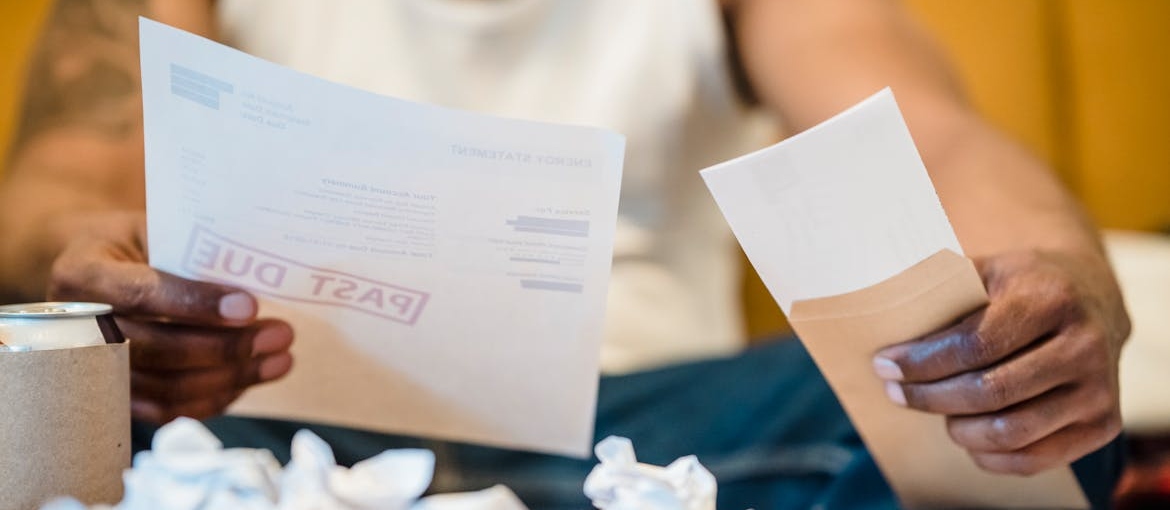It can be hard to admit when someone you care about might be using drugs. You may notice small changes—less sleep, mood swings, or missing money—and start to worry. Learning how to tell if someone is using cocaine can help you act early before things get worse. Cocaine can quickly take over a person’s life, affecting their health, relationships, and stability. If you’re seeing signs that make you uneasy, trust your instincts. The sooner your loved one gets help, the better their chances of recovery. Professional support is available through drug and alcohol treatment centers in West Virginia, where people can safely detox and begin therapy. No one should face addiction alone, and recognizing the signs is the first step toward real change.
Behavioral Signs of Cocaine Use
Cocaine can cause major shifts in behavior that are hard to ignore. Someone who used to be calm may become restless or irritable. You might notice them talking fast, pacing, or acting unusually confident. They may start disappearing for hours or lying about where they’ve been. Sleep patterns often change, with long nights awake followed by exhaustion.

Appetite usually drops, and mood swings become unpredictable. Social withdrawal, skipping work, or neglecting responsibilities are also warning signs. If you’re trying to learn how to tell if someone is using cocaine, pay attention to behavior changes that seem sudden or extreme. These shifts often happen before physical signs appear, making early awareness critical for getting your loved one the help they need.
Physical Symptoms That May Indicate Cocaine Use
Cocaine affects the body quickly, often showing visible physical signs. Many changes start subtly but grow more obvious over time. Paying attention to these clues can help you recognize the problem sooner and encourage treatment. Here are some physical symptoms on how to tell if someone is using cocaine:
- Runny or bloody nose
- Dilated pupils
- Weight loss
- Increased sweating
- Tremors or twitching
- Burn marks on lips or fingers
- Fatigue after binges
Psychological and Emotional Warning Signs
Cocaine changes how the brain works, leading to emotional highs and lows that can be intense. People may appear unusually confident or happy one moment, then crash into irritability or sadness the next. Anxiety, restlessness, and paranoia often increase over time. Some users start feeling suspicious or think people are against them. Memory and focus may decline, and motivation often fades.
You might notice impulsive decisions or reckless actions without clear reason. Sleep problems, mood swings, and depression are also common. When learning how to tell if someone is using cocaine, remember that emotional changes can appear before physical ones. If someone seems unstable, easily angered, or detached from reality, it might be time to seek help from a professional.
Social and Financial Red Flags
Cocaine use can quickly damage relationships and create money problems. A person may start isolating themselves, avoiding friends who don’t use drugs. Missed work, poor performance, or losing a job often follow. Borrowing money, selling belongings, or having unexplained cash flow changes are major signs. Some people may hang out with a new crowd that also uses drugs, creating more risk.
When you’re trying to figure out how to tell if someone is using cocaine, look at lifestyle patterns, not just physical symptoms. Addiction affects every part of life, including finances and trust. If your loved one has stopped paying bills or caring about responsibilities, it may be time to help them find support. Programs with PEIA insurance rehab coverage can make treatment more accessible.

How to Talk to Someone About Cocaine Use
It’s never easy to bring up drug use with someone you care about. Still, learning how to start this talk can truly make a difference. The goal isn’t to shame or accuse but to show genuine care and concern. When handled with empathy, your words can open a door to change. Here’s how to approach the conversation, what to avoid, and how to guide them toward professional help safely.
Approaching the Conversation With Care and Concern
Talking about drug use can make both of you nervous. The best approach is calm, honest, and caring. Choose a private place and a time when they’re sober. Speak from your heart and use “I” statements instead of blame. For example, say, “I’m worried about you,” rather than, “You have a problem.”
This makes the person less defensive and more open. You can gently bring up the idea of getting professional help once they feel heard. If you’re unsure how to start, learning how to talk to your loved one about going to rehab can make the process easier. Offer to help research programs and remind them that asking for help is a sign of strength, not weakness.
What to Avoid When Confronting a Loved One
Before talking, it helps to know what not to do. Certain approaches can push the person away or make them hide their use. Using motivational interviewing for substance abuse can help you communicate in a way that promotes trust and understanding. This method focuses on empathy and collaboration rather than control. Here are some things to avoid when having the conversation:
- Blaming or yelling: This causes shame and makes them shut down.
- Making threats: Fear rarely encourages honesty or change.
- Arguing: It turns the discussion into a power struggle instead of support.
- Ignoring your emotions: Pretending you’re fine leads to resentment later.
- Prying for details: Respect their privacy and focus on getting help instead.

Encouraging Openness and Professional Help
Once the person begins to open up, listen without interrupting. Avoid giving long lectures. People struggling with addiction often already feel ashamed or scared. Show patience and kindness instead. Let them know that recovery doesn’t happen overnight, but help is available. Encourage them to reach out to a treatment program or support group.
Many rehab for professionals programs are designed for people who need flexibility while managing work or family. Offer to go with them to an appointment or meeting. Small steps count. When someone feels supported rather than judged, they’re more likely to accept help. You may not fix everything in one talk, but planting the seed of hope matters more than you think.
Rehab and Recovery Options for Cocaine Addiction
Cocaine addiction affects every part of life—health, relationships, and stability. Recovery takes more than willpower. Professional treatment helps people address both physical cravings and emotional struggles. Rehab programs offer structure, therapy, and medical care that make lasting recovery possible. Here’s what you should know about different rehab options, therapies, and how to choose the best program for your loved one’s needs.
Why Professional Cocaine Rehab Programs Work Best
Cocaine affects the brain in ways that make quitting alone almost impossible. Medical detox and therapy help people manage withdrawal safely and rebuild healthier habits. Most drug rehab centers in WV offer both inpatient and outpatient programs, giving patients choices based on their needs. Professional treatment focuses on identifying the root cause of addiction and creating a plan for long-term recovery. Here’s why these programs are so effective:
- 24/7 medical support: Helps manage cravings and withdrawal symptoms safely.
- Therapeutic structure: Builds accountability and daily stability.
- Peer connection: Encourages motivation through shared recovery experiences.
- Skill-building programs: Teach coping and relapse prevention techniques.
- Aftercare planning: Provides continued support once treatment ends.

Therapies That Support Cocaine Addiction Recovery
Therapy helps people heal from addiction’s emotional and mental effects. It’s not only about quitting cocaine but learning how to live differently. Many treatment centers use evidence-based approaches like individual therapy for addiction, group therapy, and behavioral counseling. These sessions help uncover emotional triggers, trauma, and unhealthy thought patterns.
Over time, therapy teaches better coping strategies and emotional regulation. Family therapy can also strengthen relationships and rebuild trust. Each person’s treatment plan is unique because recovery isn’t one-size-fits-all. The goal is to help people replace destructive habits with healthier ones. Therapy builds the tools needed for long-term stability, improved self-awareness, and stronger emotional balance. Healing happens step by step, and therapy provides that steady foundation for recovery.
Choosing the Right Cocaine Rehab in Pennsylvania
Choosing a rehab program can feel overwhelming, but it’s an important step. Focus on finding a place that offers licensed staff, therapy options, and ongoing support. Some prefer inpatient care for full supervision, while others benefit from flexible programs like outpatient cocaine rehab. Outpatient care allows people to attend therapy sessions while continuing with daily responsibilities.
Location matters too—being near home can help families stay involved. Pennsylvania has many trusted centers with specialized care for cocaine addiction. When comparing programs, ask about therapy types, aftercare support, and relapse prevention plans. The best rehab program will meet the person where they are, addressing both physical and emotional needs while helping them rebuild confidence and stability.

Life After Cocaine Addiction Treatment
Recovery doesn’t end after leaving rehab. It’s the beginning of a new chapter that requires daily effort, structure, and support. Building a healthy lifestyle helps reduce the risk of relapse and makes it easier to stay on track. The next sections focus on rebuilding life, finding supportive communities, and staying committed to long-term recovery. Each step you take keeps you moving toward a stronger and healthier future.
Building a Healthy Daily Routine After Rehab
Consistency helps prevent relapse. Having structure keeps your mind and body focused on recovery instead of old habits. Start with small routines—set a sleep schedule, eat balanced meals, and exercise daily. Avoid people or places connected to drug use. Find new hobbies that bring purpose, like volunteering or learning something new.
Keeping yourself engaged reduces stress and boosts mood. Knowing how to tell if someone is secretly taking drugs can also help you recognize risky behaviors and avoid falling back into old circles. Journaling, meditation, and time outdoors can strengthen emotional balance. Every healthy choice adds up. A solid daily routine supports long-term recovery and gives life stability after rehab.
Support Groups and Aftercare Programs
Aftercare and peer support are essential for lasting recovery. Joining support groups creates accountability and encouragement from people who understand. Programs like Narcotics Anonymous or local recovery meetings provide a space to share struggles and wins. Many rehab centers offer continuing therapy and aftercare to help people adjust to life outside treatment.
These programs teach practical tools for handling stress, cravings, and daily challenges. Friends and family should stay involved too—they help the person stay connected and motivated. Asking how to tell if someone is using cocaine can help loved ones stay aware and supportive. Aftercare gives structure and hope, helping people stay focused on long-term recovery while building healthy relationships along the way.

Preventing Relapse and Staying Drug-Free
Recovery requires ongoing effort and self-awareness. Relapse doesn’t happen overnight—it builds slowly through stress, temptation, or emotional triggers. Learning how to tell if someone is using cocaine helps you stay ahead. People who ask what are the symptoms of cocaine syndrome often want to know how physical changes signal danger. Learning these signs helps prevent setbacks. Here’s how to stay strong after completing treatment:
- Stay connected: Attend therapy and meetings regularly.
- Manage stress: Use healthy outlets like walking or talking to friends.
- Avoid triggers: Keep distance from old habits or negative people.
- Build structure: Plan your days to stay productive.
- Ask for help: Reach out early when you feel tempted or overwhelmed.
Don’t Wait Until It’s Too Late—Find Support Now
It’s never easy to face the possibility that someone you care about might be using drugs. Still, knowing how to tell if someone is using cocaine can make all the difference. Spotting the signs early gives you a chance to step in before things spiral. Approach the person with care and patience, and avoid anger or blame. Encourage them to talk and listen without judgment. Professional help is available, and treatment truly works when the person feels supported. If your loved one agrees to seek help, stay involved and remind them that recovery takes time. Every small step matters. You can help them rebuild their health and life, one day at a time. Reaching out for help today could save someone you love tomorrow.



